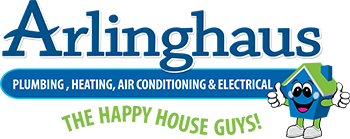Time has a funny way of sneaking up on us. One day, you’re basking in the cool air of your brand-new AC unit, and the next, you realize it’s been fifteen years since you had it installed. Your once state-of-the-art system might no longer be the latest model on the market.
So, you might be asking: Should I replace my old air conditioner? Let’s review some of the reasons why it could be time to say goodbye to your aging cooling system.
Signs You Need a New Air Conditioner
Before jumping to conclusions, let’s look at some telltale signs that you need a new air conditioner:
Frequent Repairs
If you find yourself constantly calling for air conditioner repair, it might be a sign that your system is on its last legs. Frequent breakdowns not only disrupt your comfort but also add up in costs. An aging system that needs repairs more than once or twice a year is a clear indication that it’s time to start shopping for a new unit.
Rising Energy Bills
Have you noticed a steady increase in your energy bills? Older air conditioners often lose efficiency over time, meaning they have to work harder (and use more energy) to keep your home cool. If your energy bills are skyrocketing, you should replace your old air conditioner if you want to save money in the long run.
Inconsistent Cooling
Is your home experiencing hot and cold spots? Poor airflow or the inability to maintain a comfortable temperature are common signs you need a new air conditioner. Insufficient airflow might result from a clogged air filter, blocked vents, or an aging system that can’t keep up with your cooling needs. If your AC is blowing warm air or failing to cool your home evenly, it’s time to consider an upgrade.
Unusual Noises
Your air conditioning unit should operate relatively quietly. If you start hearing grinding noises, banging, or other unusual sounds, it could indicate a serious issue like a broken motor or loose parts. These problems often mean expensive repairs are ahead, making a new air conditioner a more cost-effective solution.
Age of the Unit
When considering if you should replace your old air conditioner, the age of your unit plays a significant role. For instance, are you currently sitting there, asking: Should I replace my 20-year-old AC? If so, the answer is most likely yes. Most air conditioning systems have a life expectancy of around 15 to 20 years. Even with proper maintenance, older air conditioners are far less efficient than modern models and are more prone to breakdowns.
When Is It Worth Replacing an Old AC Unit?
Knowing when it’s worth replacing an old AC unit involves weighing several factors, including efficiency, repair costs, and overall performance. Here are some key points to consider:
Efficiency and Energy Savings
Newer AC units are designed to be much more energy-efficient. You should replace your old air conditioner if your current system is over 15 years old. Upgrading to a modern unit can significantly reduce your energy costs. Energy-efficient models not only save you money but also reduce your environmental footprint.
Cost of Repairs
As we already mentioned, frequent repairs are one of the most common signs you need a new air conditioner. As a general rule of thumb, if the cost of repairing your air conditioner is more than half the cost of a new unit, it’s time to replace it. Continually investing in an aging system that frequently breaks down is a losing battle.
Comfort and Performance
An effective cooling system should maintain a comfortable temperature throughout your home. If your current AC is struggling to do so, it’s worth investing in a new unit that can keep you cool and comfortable, even during the hottest summer days.
Refrigerant Leaks
Older AC units often use a type of refrigerant that is no longer environmentally friendly and can be costly to replace. If your system has a refrigerant leak, it might be more economical and eco-friendly to invest in a new air conditioning unit that uses modern refrigerants.
Benefits of Upgrading to a New AC Unit
Upgrading to a new AC unit comes with several benefits that enhance your comfort and savings:
Improved Comfort
A new air conditioner can drastically improve your home’s comfort level. Modern systems offer better temperature control, improved humidity management, and quieter operation. You’ll notice a difference in how quickly and evenly your home cools.
Are you unsure which type of AC system is right for your home? At Arlinghaus, our knowledgeable central air conditioner and mini split installers can walk you through your options, helping you find the best solution for your comfort needs.
Lower Energy Bills
One of the biggest advantages of upgrading to a new AC unit is the potential for lower energy bills. Energy-efficient models consume less power while providing better cooling, resulting in significant savings over time.
Enhanced Air Quality
New air conditioning units often come with advanced filtration systems that improve indoor air quality. These filters can remove dust, pollen, and other allergens from the air, making your home healthier and more comfortable, especially for those with allergies or respiratory issues.
Increased Home Value
Installing a new HVAC system can increase your home’s value. Prospective buyers often look for homes with modern, energy-efficient systems already in place, which can be a selling point if you ever decide to move.
How to Maintain Your New Air Conditioner
Choosing to install a new air conditioning system means committing to its upkeep. Performing regular maintenance tasks will help keep your unit running efficiently and in peak condition.
Regular Maintenance
To keep your new air conditioner system running efficiently, schedule regular maintenance with a trusted HVAC professional. Regular tune-ups can extend the lifespan of your system and prevent costly breakdowns.
Change Air Filters
Regularly changing your air filters is essential for maintaining good airflow and air quality. Dirty filters can restrict airflow, causing your system to work harder, effectively reducing its efficiency. Check and replace your filters every one to three months, depending on usage.
Monitor Thermostat Settings
Using a programmable thermostat can help you save energy by adjusting the temperature when you’re not home. Keeping your home at a consistent, comfortable temperature can also reduce the strain on your AC unit.
Keep the Area Around the Unit Clear
Make sure the area around your outdoor unit is clear of debris, plants, and other obstructions. This promotes proper airflow and allows the system to function properly. Clean the condenser coils regularly to maintain efficiency.
Address Issues Promptly
If you notice any warning signs, such as unusual noises, weak airflow, or increased energy bills, address them promptly. Early intervention can prevent minor issues from becoming major, costly problems.
Schedule Your AC Installation With Arlinghaus!
Time flies, and before you know it, your reliable air conditioner might not be as efficient as it once was. If you’re experiencing any of the signs you need a new air conditioner, it’s worth considering a replacement. Upgrading to a new, energy-efficient system can improve your home’s comfort, reduce your energy bills, and enhance air quality.
Contact Arlinghaus to schedule a consultation and explore your options for a new air conditioning unit. Our experienced HVAC technicians are here to help you find the perfect solution for your home’s cooling needs.
Contact our air conditioner installers in Cincinnati, OH, to schedule your service today!


